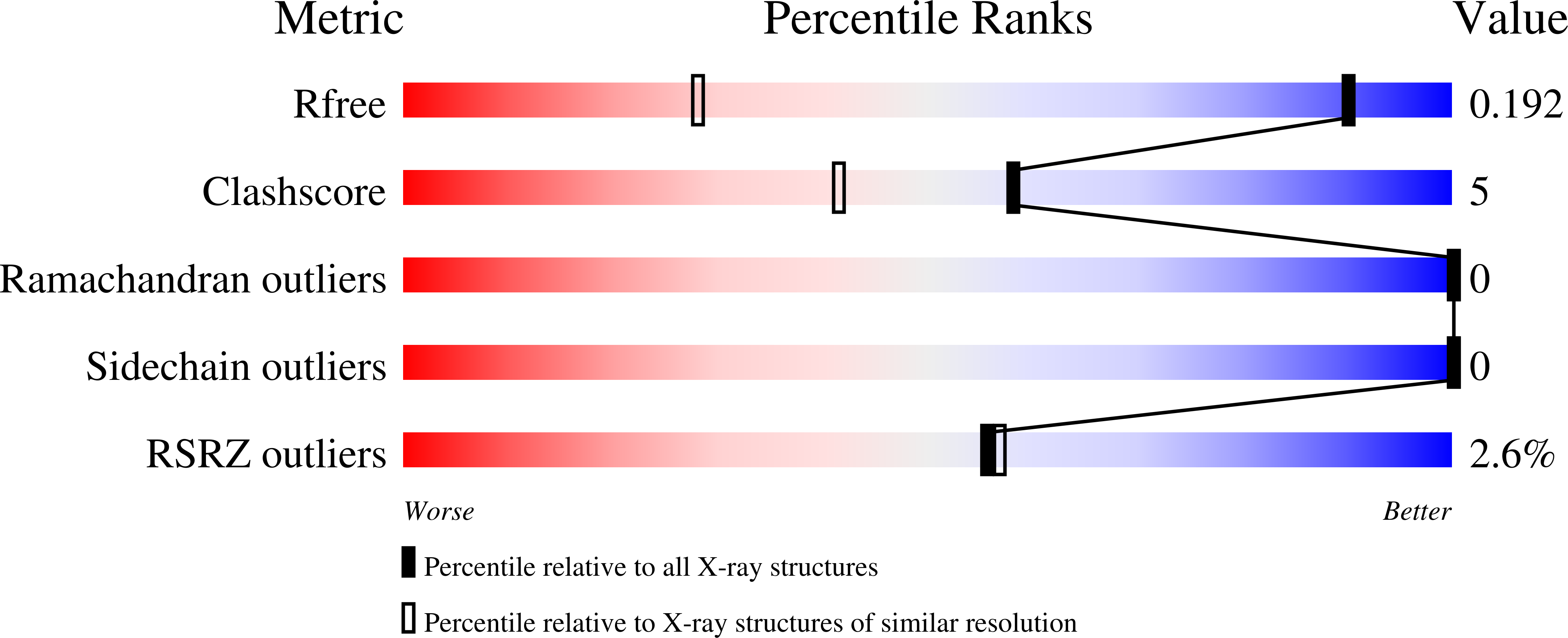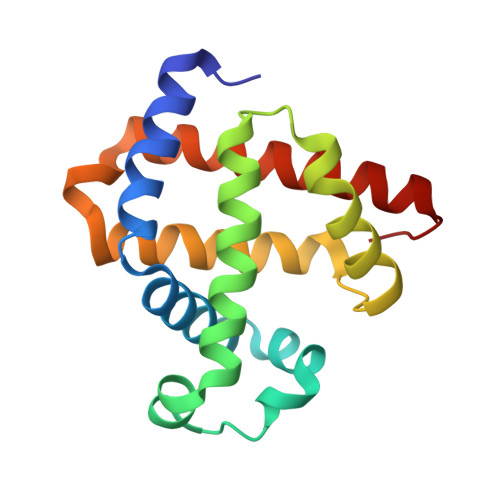An Engineered Glutamate in Biosynthetic Models of Heme-Copper Oxidases Drives Complete Product Selectivity by Tuning the Hydrogen-Bonding Network.
Petrik, I.D., Davydov, R., Kahle, M., Sandoval, B., Dwaraknath, S., Adelroth, P., Hoffman, B., Lu, Y.(2021) Biochemistry 60: 346-355
- PubMed: 33464878
- DOI: https://doi.org/10.1021/acs.biochem.0c00852
- Primary Citation of Related Structures:
7KYR, 7L3U, 7L3Y - PubMed Abstract:
Efficiently carrying out the oxygen reduction reaction (ORR) is critical for many applications in biology and chemistry, such as bioenergetics and fuel cells, respectively. In biology, this reaction is carried out by large, transmembrane oxidases such as heme-copper oxidases (HCOs) and cytochrome bd oxidases. Common to these oxidases is the presence of a glutamate residue next to the active site, but its precise role in regulating the oxidase activity remains unclear. To gain insight into its role, we herein report that incorporation of glutamate next to a designed heme-copper center in two biosynthetic models of HCOs improves O 2 binding affinity, facilitates protonation of reaction intermediates, and eliminates release of reactive oxygen species. High-resolution crystal structures of the models revealed extended, water-mediated hydrogen-bonding networks involving the glutamate. Electron paramagnetic resonance of the cryoreduced oxy-ferrous centers at cryogenic temperature followed by thermal annealing allowed observation of the key hydroperoxo intermediate that can be attributed to the hydrogen-bonding network. By demonstrating these important roles of glutamate in oxygen reduction biochemistry, this work offers deeper insights into its role in native oxidases, which may guide the design of more efficient artificial ORR enzymes or catalysts for applications such as fuel cells.
Organizational Affiliation:
Department of Chemistry, University of Illinois at Urbana-Champaign, Urbana, Illinois 61801, United States.

















